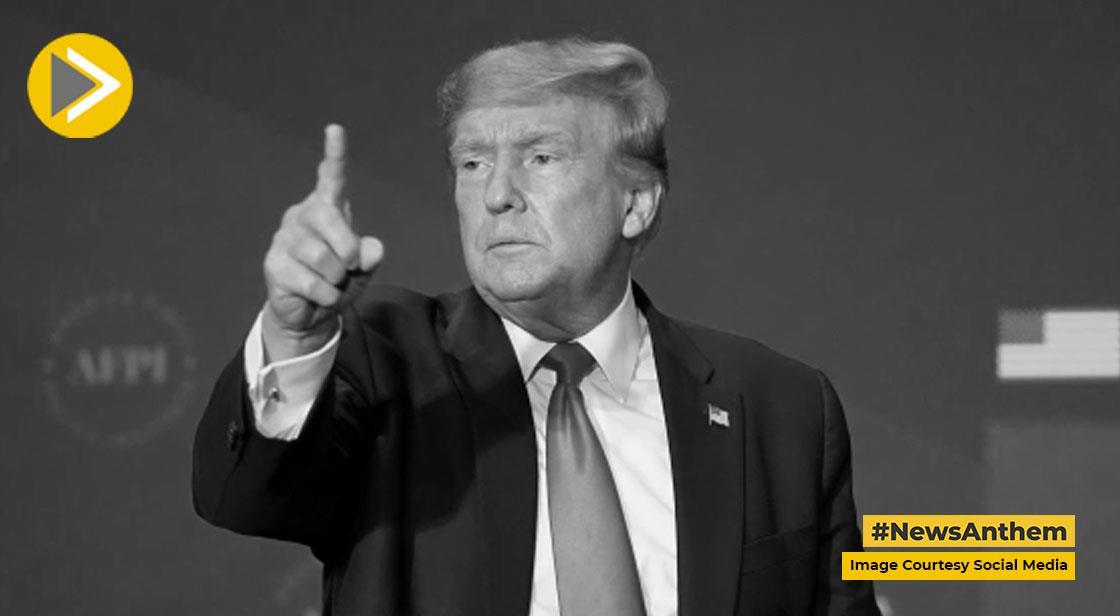Tariff Pause Under Trump Brings Little Ease While Recession Risks Persist

News Synopsis
Despite U.S. President Donald Trump’s temporary pause on certain tariffs, global financial markets continue to face high volatility. The week-long economic turbulence showed little sign of calming down by Friday, as investors and foreign leaders struggled to adjust to the rapidly shifting global trade landscape.
Brief Tariff Reprieve Offers Minimal Relief
Markets saw a short-lived boost on Wednesday after Trump delayed tariffs for 90 days on several countries. However, his escalating trade war with China—America’s largest trading partner after Canada and Mexico—has revived fears of a global recession and triggered market uncertainty.
Recession Fears Mount as Volatility Surges
The S&P 500 index plunged by 3.5% on Thursday and is now down roughly 15% from its all-time high in February. Analysts warn that stocks may continue to fall amid ongoing ambiguity around U.S. trade policies. In Asia, Japan’s Nikkei index fell nearly 5% and Hong Kong’s Hang Seng is on track for its worst weekly performance since 2008. Oil prices are also heading for a second consecutive weekly drop.
Treasury Secretary’s Assurances Fall Short
U.S. Treasury Secretary Scott Bessent attempted to calm investors by claiming that over 75 countries are open to new trade talks. He expressed optimism about future deals, while Trump himself said he was hopeful about reaching an agreement with China. However, these comments failed to restore confidence in global markets.
U.S. Begins Trade Talks with Vietnam
Following discussions between Bessent and Vietnamese Deputy Prime Minister Ho Duc Phoc, the U.S. and Vietnam agreed to start formal trade negotiations. Vietnam also signaled its willingness to curb the transshipment of Chinese goods to avoid U.S. tariffs, according to Reuters.
Japan Mobilizes Diplomatic Task Force
Japanese Prime Minister Shigeru Ishiba has launched a task force, led by a top aide, with plans to visit Washington next week. The move is seen as an attempt to de-escalate trade tensions and safeguard Japan’s economic interests.
Trump Increases Pressure on China
Trump increased tariffs on Chinese imports shortly after pausing duties on other countries. A White House official said tariffs on Chinese goods have risen by 145% since Trump took office. While Trump voiced confidence in reaching a deal with President Xi Jinping, he continued to criticize China for taking advantage of the U.S.
China Pushes Back and Seeks Allies
China condemned the U.S. approach as blackmail and reiterated its readiness to retaliate if provoked. At the same time, Beijing has reached out to other trading partners including Spain, South Africa, and Saudi Arabia for support. China also imposed restrictions on U.S. film imports in response to the tariffs.
Canada and Mexico Still Face Tariff Pressures
The tariff pause does not apply to Canada and Mexico, whose exports still face a 25% tariff unless they comply with the U.S.-Mexico-Canada trade agreement. This exclusion has heightened tensions among the U.S.'s top trade partners.
EU Pauses Counter-Tariffs, Keeps Door Open
The European Union announced a delay in its counter-tariffs, originally set to impact $23 billion worth of U.S. imports. European Commission President Ursula von der Leyen emphasized that the pause is to allow time for negotiation but warned that retaliatory measures could resume if talks fail.
Economic Impact Deepens Despite Revenue Claims
Trump claimed that the U.S. is collecting $2 billion daily from tariffs. However, Treasury data showed that total customs duties in March were $8.75 billion—an increase of $2 billion year-over-year, partly due to Trump’s recent tariff hikes. Business leaders remain concerned about rising costs, reduced orders, and disrupted supply chains stemming from the chaotic trade policy.
Recession Risk Remains High
According to Goldman Sachs, the chance of a U.S. recession is now at 45%, underscoring the economic damage inflicted by ongoing trade hostilities. Researchers at Yale University noted that average U.S. import duties are at their highest levels in over a century, contributing to deepening concerns.









